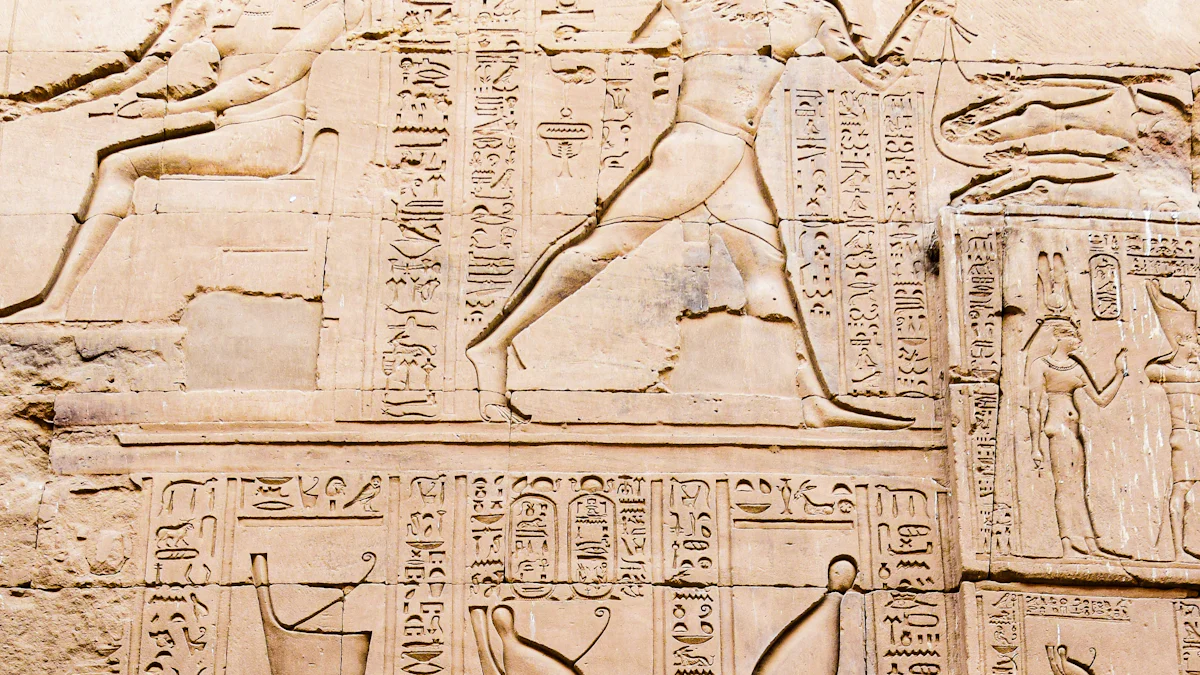Why I Still Call It a Torch: A British Perspective on Flashlights

Lighting Up the Debate: A Brief Introduction
Setting the Stage: A Cross-Atlantic Linguistic Journey
As an American living in the UK, I've often found myself immersed in linguistic nuances that bridge the gap between these two English-speaking nations. One such difference that never fails to spark a lively debate is the varied terminology used for portable electric lights. In the US, we commonly refer to these devices as "flashlights," whereas in the UK, they are affectionately known as "torches." This divergence in language usage has piqued my curiosity and led me on a fascinating journey to uncover the historical and cultural roots behind this lexical discrepancy.
The Aim of This Torchlight Tale
In this blog post, I aim to shed light on the captivating narrative of how a simple handheld light source can illuminate broader cultural disparities. By delving into the etymology and evolution of these terms, I hope to provide insight into why such discrepancies exist and why they matter. Additionally, I'll share personal anecdotes and observations from both sides of the Atlantic to offer a firsthand perspective on this linguistic divergence.
Now, let's embark on an enlightening exploration of why a simple device like a flashlight or torch can ignite such spirited discussions on language and culture.
The Historical Flame: Why British People Call Flashlights Torches

From Fire to Electric: The Evolution of the Torch
The story of the torch traces back to its fiery origins, where it was initially a simple wooden stick with a combustible substance at one end. This primitive form served as a source of light for early civilizations, guiding their way through the darkness. However, it wasn't until the late 19th century that the torch underwent a revolutionary transformation with the invention of battery-powered handheld lights.
The creation of battery-powered flashlights around 1899 marked a pivotal moment in history, making it possible for individuals to carry portable electric lights. This innovation paved the way for the modern-day handheld torch, which became an indispensable tool for countless people.
The evolution didn't stop there; in the early 2000s, LED flashlights were introduced, further enhancing the efficiency and brightness of these portable light sources. This continuous evolution has solidified the place of the torch as an essential item in our daily lives.
Crossing the Pond: How "Torch" Landed in Britain
The term "torch" found its way into British lexicon when advancements in technology led to the creation of handheld electric lights. Prior to this development, England had long associated the word "torch" with its traditional meaning—a wooden stick with a combustible substance at one end. As electricity became more accessible and technology advanced, Brits adopted the term 'torch' for these new devices.
In contrast, across the Atlantic, America had already embraced and popularized what they called "flashlights." The divergence in terminology between these two nations reflects not only linguistic disparities but also cultural and historical differences.
A Tale of Two Terms: The British and American Divide
Flashlights vs. Torches: A Linguistic Analysis
As we delve into the linguistic divergence between British and American English, it becomes evident that the terminology for portable electric lights serves as a prime example of this disparity.
The American Perspective: Why "Flashlight"?
In American English, the term flashlight is used to describe a battery-powered handheld electric lamp. This nomenclature reflects the practical function of the device, emphasizing its ability to emit a sudden burst of light when needed. The word "flash" in flashlight conveys the swift and immediate nature of its illumination, aligning with the device's primary purpose as a quick and reliable source of light.
On the other hand, in British English, the preference for torch over flashlight underscores a cultural attachment to traditional terminology and historical usage. The British people call flashlights torches, which reflects their inclination to preserve linguistic heritage while embracing technological advancements.
The British Stance: Holding onto "Torch"
The term torch has become deeply ingrained in British culture as the standard reference for portable electric lights. This linguistic choice not only distinguishes it from American English but also reflects a broader commitment to preserving language traditions. Despite the global prevalence of the term flashlight, British people continue to hold onto torch as an integral part of their linguistic identity.
Beyond Flashlights: Other Linguistic Differences
In addition to diverging terms for portable electric lights, there are numerous everyday linguistic disparities between British and American English that contribute to the rich tapestry of language diversity.
Chips and Crisps, Lifts and Elevators: Everyday Differences
The lexical variances extend beyond portable lights; they encompass everyday items and experiences. For instance, what Americans refer to as "French fries," the British affectionately call "chips." Similarly, while Americans ride "elevators" to reach different floors, Brits opt for "lifts." These subtle yet distinct differences reflect unique cultural perspectives embedded within language usage.
Embracing the Diversity: Why It Matters
Embracing these linguistic differences fosters an appreciation for diverse cultural expressions and historical influences. By recognizing and respecting varied terminologies across English-speaking nations, we celebrate the richness of language evolution and its profound impact on shaping our identities.
Why I Still Stick to "Torch": A Personal Take
As an expat from the US living in the UK, my linguistic journey has been intertwined with everyday experiences that highlight the subtle yet significant differences between American and British English. One such divergence that holds a special place in my heart is the endearing term torches used by the British for what Americans call flashlights.
A Nostalgic Connection: My Torchlight Memories
Growing up in America, I fondly remember using flashlights during camping trips and power outages. The word "flashlight" evokes memories of childhood adventures and practical utility. However, upon moving to the UK, I was introduced to the term torch in everyday conversations. Initially, it felt unfamiliar, but over time, it became a symbol of my assimilation into British culture.
One particular memory stands out—a serene evening at the Kendal Torchlight Carnival. The streets illuminated by large flaming torches created a mesmerizing spectacle, evoking a sense of tradition and community spirit. This experience reinforced my appreciation for the cultural significance of torches in British society.
In Defense of "Torch": Why It Feels Right
The transition from "flashlight" to torch signifies more than just a shift in terminology; it represents an embrace of cultural diversity and an acknowledgment of linguistic heritage. The term torch embodies a sense of continuity with historical usage while adapting to modern contexts. Its versatility—from handheld electric lights to ceremonial flaming torches—captures the essence of language evolution and cultural resonance.
In choosing to stick with "torch," I celebrate not only linguistic diversity but also the rich tapestry of experiences that have shaped my cross-continental journey.
Wrapping It Up: Embracing Linguistic Diversity
As I reflect on the captivating journey through the linguistic divergence between British and American English, it becomes evident that embracing linguistic diversity is crucial for understanding the full range of human expression and communication. Each language provides unique perspectives and ways of expressing thoughts, emotions, and experiences. The preservation and revival of dying languages play a pivotal role in embracing cultural, social, linguistic, and cognitive aspects.
Reviving dying languages helps communities reconnect with their cultural roots, strengthens a sense of belonging and pride, and fosters a sense of community and solidarity among its speakers. Furthermore, linguistic diversity is interwoven with the culture, social practice, and values of the community. Losing a language means losing some of the culture, social practice, and values of the community.
Preserving a language is important on different levels as it maintains and celebrates the diversity of human cultures while fostering a sense of community and solidarity among its speakers. This not only strengthens a sense of belonging but also contributes to preserving cultural identity and heritage.
In conclusion, by recognizing and respecting varied terminologies across English-speaking nations like torches, we celebrate the richness of language evolution and its profound impact on shaping our identities.
2024/4/30
See Also
Light Up Your Camping Trips: Comparing Lanterns and Flashlights
The Progression of Flashlights: From Historical Times to Contemporary Innovations
Comprehending the Meaning of a Tactical Flashlight
Exploring the Various Kinds of Flashlights
Selecting the Perfect Household Flashlight: An In-Depth Guide
